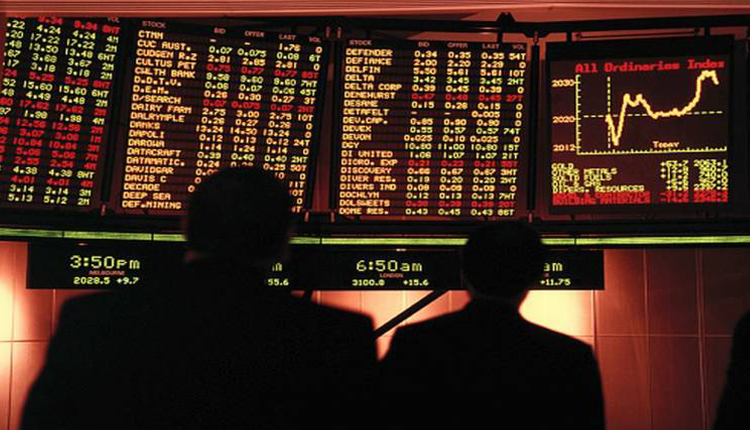Asian markets edged higher in Tuesday afternoon trade, with Australia’s central bank cutting its cash rate to a new record low.
In Japan, the Nikkei 225 rose 0.65 percent, with shares of index heavyweight and conglomerate Softbank Group jumping 2.19 percent. The Topix index also advanced 0.96 percent.
Elsewhere, South Korea’s Kospi traded 0.4 percent higher as shares of Celltrion surged 6.4 percent. Australia’s S&P/ASX 200 added 0.49 percent as majority of the sectors rose.
Overall, the MSCI Asia ex-Japan index traded 0.21 percent higher.
Markets in China and Hong Kong are closed on Tuesday for holidays.
RBA cuts cash rate to record low
The Reserve Bank of Australia (RBA) on Tuesday slashed its cash rate by a quarter point to a new record low of 0.75 percent.
RBA Governor Philip Lowe said: “It is reasonable to expect that an extended period of low interest rates will be required in Australia to reach full employment and achieve the inflation target.”
“It’s clear the urgency with which they’re moving … that they wanna get their cash rate down below 1%,” Warren Hogan, industry professor at UTS Business School, told CNBC’s “Capital Connection.” The Australian central bank has slashed interest rates three times so far in 2019.
“The statement today isn’t changed all that much from what we’ve seen in recent months, which suggests another rate cut is (in) the cards,” Hogan added.
Following that decision, the Australian dollar changed hands at $0.6723 after touching an earlier high of $0.6775.
Japan’s sales tax increase
The Bank of Japan’s Tankan survey for the third quarter was released on Tuesday, where the big manufacturers index worsened for its third straight quarter and touched its lowest level since June 2013.
“We think GDP will fall by almost 1 percent in the fourth quarter and then be broadly flat in the first half of next year,” Marcel Thieliant, senior economist at Capital Economics, told CNBC’s Street Signs on Tuesday.
Meanwhile, a twice-delayed increase in the sales tax in Japan, from 8 percent to 10 percent, took effect Tuesday, a move that has for some time sparked concern among retailers, restaurants and other businesses in the country.
“I think it’s actually a bold move to do this at this point in time with all the global headwinds in the global economy,” Marie Owens Thomsen, chief economist at Indusuez Wealth Management, told CNBC’s “Squawk Box” on Tuesday. “On the other hand, of course, it’s necessary because of the Japanese debt burden.”
“Our view is that the sales tax hike will prove less damaging than previous tax hikes,” Thieliant said. “We haven’t seen … the front-loading in durable goods purchases that we saw ahead of the last tax hike,” he added, in reference to Japan’s last sales tax increase in 2014.
The Japanese yen last traded at 108.19 per dollar after weakening from levels below 108.0 in the previous session.
Apple suppliers mixed
Shares of Apple suppliers in Asia were mixed in afternoon trade, despite the Cupertino-based tech giant’s stock jumping 2.4 percent overnight on the back of a price-target increase by an analyst at J.P. Morgan.
In Japan, Taiyo Yuden advanced 3.96 percent and Murata Manufacturing gained 2.49 percent. Japan Display, on the other hand, plunged 5 percent.
Over in South Korea, LG Display traded 0.71 percent lower, while Taiwan Semiconductor Manufacturing Company shares in Taipei got a boost as they surged 3.13 percent.
The U.S. dollar index, which tracks the greenback against a basket of its peers, rose above 99.459 to its highest since mid-2017. It was was last at 99.479.
Oil prices rose in the afternoon of Asian trading hours after Monday’s fall, with international benchmark Brent crude futures adding 0.73 percent to $59.68 per barrel. U.S. crude futures also gained 0.89 percent to $54.55 per barrel.
Source: CNBC
